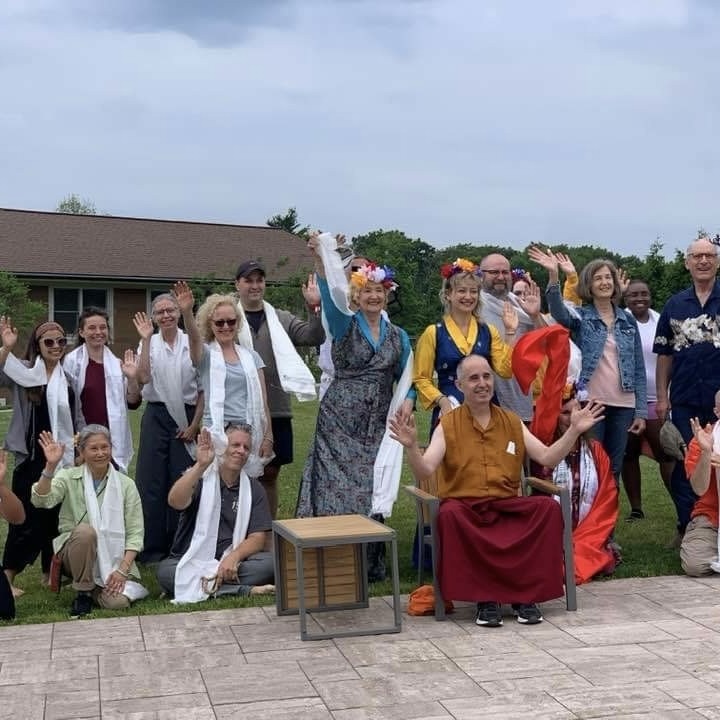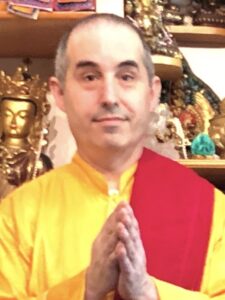18th Annual Rimay Monlam
With Tulku Sherdor
June 8 - 11, 2025
A Tibetan Buddhist Non-sectarian Convocation to Promote Peace, Harmony and Health Throughout the World
RETREAT BY INVITED PRESENTER
Monlam means a way to give voice to and realize our highest aspirations. It is a collective and personal spiritual mission statement. We will gather over these four days to harness, focus, and direct the natural power of our own minds, and invoke the power of the reality of interdependence through prayers and recitations. The positive energy, clarity, and love generated through this gathering has inspired attendees year after year, and they have taken this energy back into their lives and activities after the program concludes. This year will will conclude with a Saga Dawa Celebration. Please join us. You will leave this gathering inspired, energized, and activated.
“This weekend gave me a new zest for both the outdoors and the benefits of a retreat in a scenic and magical landscape.”
DUAL PROGRAM: Pair with Sadhana Practice: Expanding Our Compassion for All Beings, led by Tulku Sherdor, June 4-8, and save 10% off your room stay. REGISTER HERE
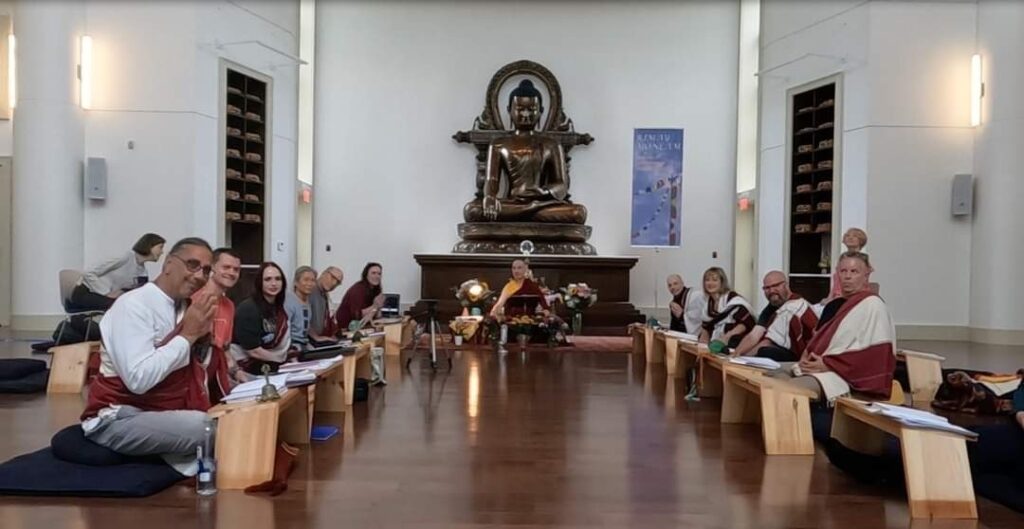
PROGRAM DESCRIPTION
A monlam chenmo is not just a ceremonial recitation of prayers. It covers the entire Buddhist path of training over the course of each day. The daily program begins with renewal of the refuge and bodhicitta commitments, progresses through ever more sublime meditation rituals, and concludes with a series of aspiration and dedication prayers. These are the three excellences, in the beginning, the middle, and the end.
All of the recitations are performed as don gom, with undistracted attention to both the words and their meaning at all times. Thus, recitation and meditation are synonymous, and mutually reinforcing. Concentrating on the words while seated in meditation posture, and visualizing clearly or reflecting upon what the words describe, is calm abiding, śamatha. The insights to which the words direct you, blossoming within your own mind, are vipaśyanā. Don gom therefore is an instance of the unity of śamatha and vipaśyanā, the two main components of all Buddhist meditation systems.
A monlam chenmo program encompasses all three major vehicles of Buddhist practice, and the trainings in view, meditation, and conduct of both sūtra and tantra. It is designed to expedite and enhance the two accumulations of relative merit and ultimate wisdom. The practice of monlam thus is not only don gom; it is also mos gom. Mos gom means that we are not just aspiring to, but actually modeling, the state of liberation, of universal enlightenment, consistent with the view and approach of Mantrayāna.
That said, whether, as Buddhists, we conceive that we are praying to enlightened beings who are imagined to be out there somewhere, or whether we see our prayers as simply a skillful means to connect with the Buddha Nature that is the ground and ultimate state of our own being, really makes no difference. Either view, being conceptual, is simply provisional, and indicative. Our efforts will bear fruit, no matter which concept fits our minds better. Thus, everyone can participate in a monlam at his or her own level, with full benefit.
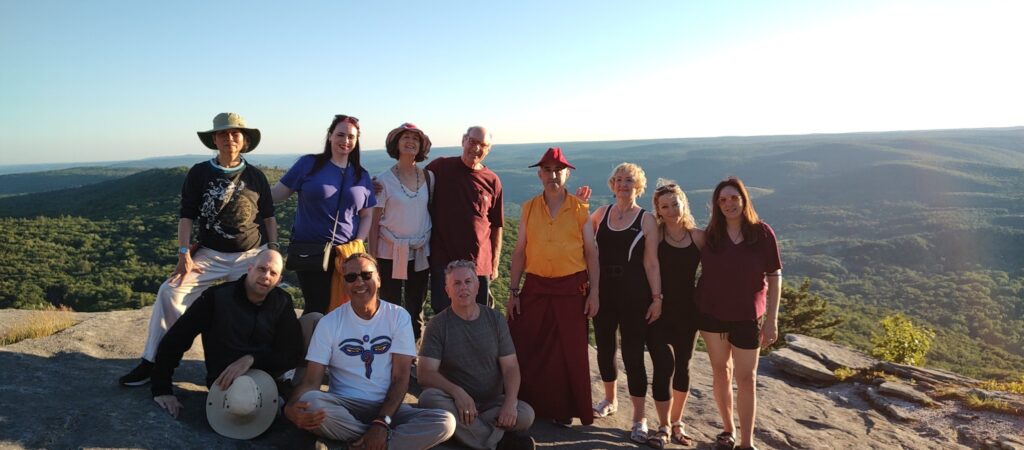
The term ‘prayer’ hardly captures the sense of any of the Tibetan terms it is employed to translate. In particular, the term monlam denotes a way, an approach, to formulating and realizing our highest aspirations. It is an articulation of purpose: a mission statement. Thus, monlam lacks any connotation of helplessness which the notion of prayer, in English, might carry. It also belies the notion of prayer as mere wishful thinking. Rather, for practicing Buddhists, a monlam harnesses and directs the natural power of our own minds, and invokes the power of the reality of interdependence, to yield actual results or benefits from our effort, dedication, and purpose. This dynamic is conveyed by the den tsig, or declaration of truth, with which an aspiration prayer typically concludes.
Thus, when we pray, “may that to which we have aspired come to pass,” we assemble the causal factors, and articulate the reasons why the desired outcome should transpire, rather than ask for a result that magically circumvents the conventional truth of interdependence. Through our aspiration prayers, all necessary and supporting factors of relative and ultimate truth are invoked, such that, through the reality of interdependence, the effect to which we aspire is brought that much closer to becoming true.
Prayer, in other words, is about bridging the gap from ‘aspiring’ to ‘transpiring.’ In the Buddhist view, everything good that we do, and can accomplish, begins as an aspiration. A monlam both crystallizes our intentions, and helps us to realize them; it helps us resolve our goals, and leads us toward them. We recite a monlam to chart the course of our own spiritual practice and progress.
Aspirations channel our life force, enabling us to cross the gap, or leap over the divide, between where we find ourselves in one moment, and strive to be in another. It is, once again, through powerful aspirations to serve the needs of living beings, fueled by the power of mental and physical energies gathered through arduous practice, focused prayer, and virtuous acts, that evolved beings—bodhisattvas—incarnate to show us the way forward, and to preserve and uphold the lineages and teachings of Buddhadharma.
EVENT HIGHLIGHTS
- Intimate setting with personal access to the teacher
- Interactive sessions with question and answer periods
- Guided meditations
- Aspirations for the welfare of all sentient beings
- Opportunity to pair with Sadhana Practice: Expanding Our Compassion for All Beings and receive discounted accommodations fees
- Delicious all-vegetarian meals with locally sourced ingredients
- Option to extend stay on Personal Retreat
- Extensive library of dharma books
- Expansive wooded grounds with beautiful paths, flora and fauna
OPEN TO ALL
The program is appropriate for all levels of practitioner. It is not physically rigorous, but it does consist of sitting and reciting during each session.
ADDITIONAL INFORMATION
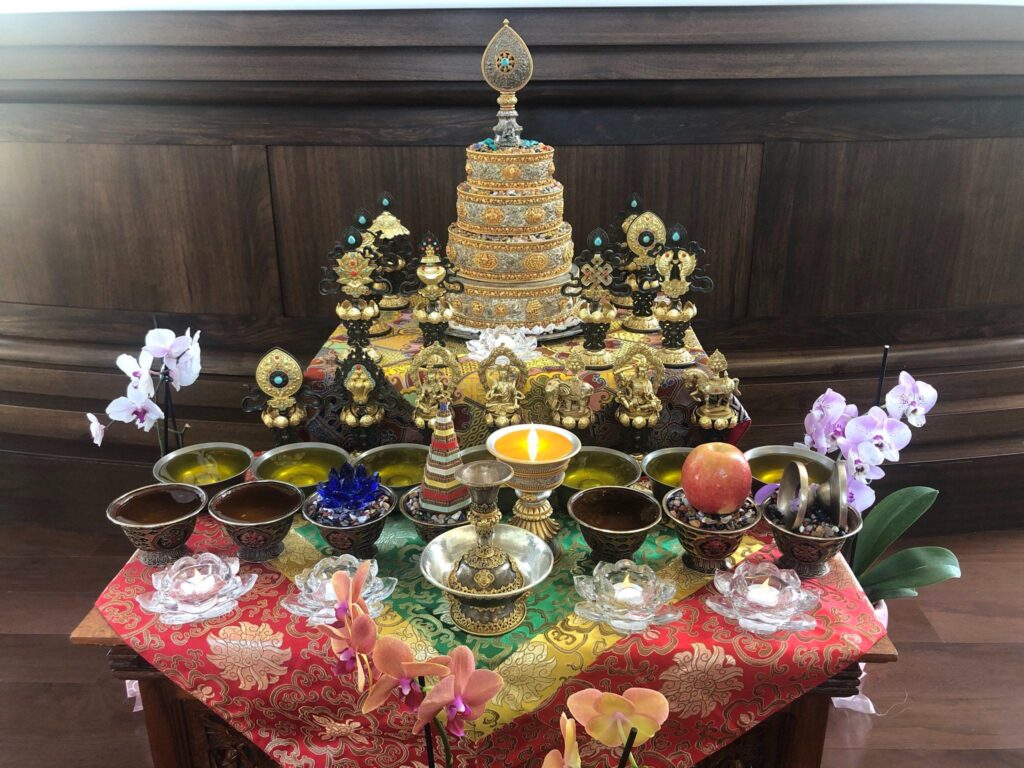
SCHEDULE
(subject to change)
Sunday, June 8
| 2:00 PM | Check in begins |
| 4:00-6:00 PM | Welcome and Introduction |
| Program Begins | |
| 6:00-7:00 PM | Dinner |
Monday, June 9-Tuesday, June 10
| 8:00-9:00 AM | Breakfast |
| 8:45-11:30 AM | Program |
| 12:00-1:30 PM | Lunch |
| 1:45-5:30 PM | Program |
| 6:00-7:00 PM | Dinner |
| 7:00 PM | Informal gathering around the firepit |
Wednesday, June 11
| 8:00-9:00 AM | Breakfast |
| 8:45-11:30 AM | Saga Dawa Celebration |
| 12:00-1:00 PM | Lunch |
| 1:00 PM | Checkout and Departure |
Teacher
Tulku Sherdor has been the Executive Director of the Blazing Wisdom Institute since 2004. Born in Montreal, Canada in 1961, he practiced Buddhist Insight meditation as a teenager and met his principal teacher, Tulku Urgyen Rinpoche, in Nepal in 1981. He was fortunate to study with many other pre-eminent Tibetan Buddhist masters of the 20th century. Early in his life, he completed a forty-month lama retreat in the Karma and Shangpa Kagyu schools of Tibetan Buddhism under Kalu Rinpoche, and a year-long solitary retreat in the Chogling Tersar practice lineage held by Tulku Urgyen. He has since completed ten years…
Learn more about Tulku Sherdor


